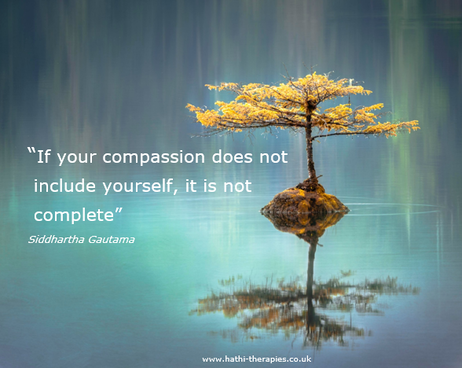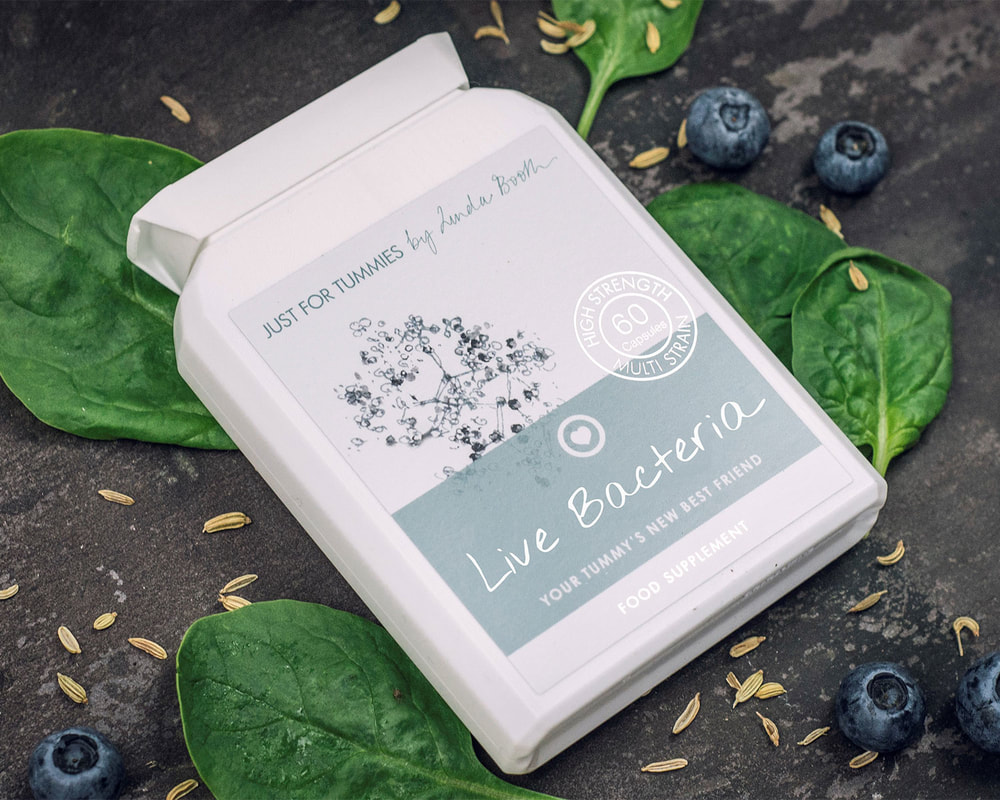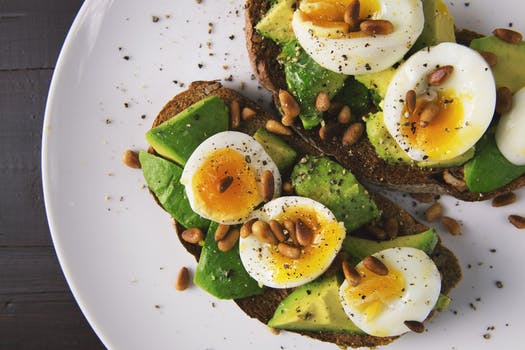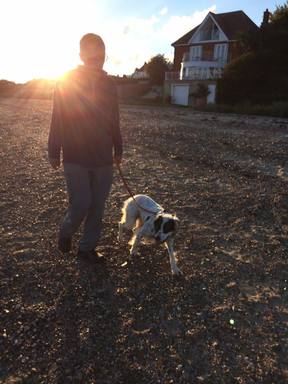|
So, recently I have been thinking about developing my own self-compassion…. After all I know I’m a work in progress! I believe we ALL are! Self-compassion is often spoken about as “being kind to yourself” but that isn’t the whole meaning of compassion. I don’t think compassion just happens; it’s a practice that can be developed and research is suggesting that compassion and mindfulness can actually make changes to the brain that helps improve our stress response. Compassion is about connecting with another human being on an equal footing and we also know that connection with others is a fundamental human need. I often encourage clients in learning self-compassion, but I realised (once again!) that I’m not always “taking my own medicine” outside of sessions. As a therapist I believe I can be intuitive and compassionate but I’m also human and that means not infallible. To be fair during my sessions I probably demonstrate more self-compassion than I always do outside of session!! (Not that I don't try - because I do but the reality is we all have to try harder sometimes! And old habits need a bit of work! We need to pay attention to ourselves)
I guess for a start, listening to yourself and being curious..... I do try to notice my own discomfort and check in on my inner dialogue but an incident a couple of days ago led me to re-evaluate my self-compassion! On this occasion, I really “heard” my self-talk…. the content seemed to develop a “rational” answer, but it wasn’t really resonating true and I suddenly realised it wasn’t what I was saying but how I was saying it. I wasn’t believing it, I wasn’t “feeling it” and the reason? It was all in the tone! Because my internal dialogue wasn’t that of an “equal” - my tone to myself was condescending and berating. It wasn’t how I would speak to someone else! Although my words “that’s not helpful right now….” were accurate, in acknowledging my tone (which made it sound more like a “well that’s not helpful is it?!.... tut-tut you shouldn’t think like that...” kind-of-tone) I was able to repeat it in a more compassionate and helpful way; acknowledging that I felt uncomfortable, that what I was experiencing was normal human stuff and I could do something different if I wanted. By forgiving myself for being human and not “telling myself off” I allowed myself to believe, to feel, that something else was possible.
The Cambridge dictionary defines compassion as a strong feeling of sympathy and sadness for other people’s suffering or bad luck and a desire to help”. It implies some kind of suffering together BUT with the aim of moving forward. So, compassion for others engages us in feeling both emotionally and physically another’s pain/suffering. However, compassion is not just about empathy; putting yourself in (what it might be like to be in) someone else's shoes, nor is it about personalising their pain or being kind at the expense of moving forward, (although kindness may be shown in compassion). So for instance, it’s not about just reassuring ourselves that everything is ok – because in fact everything ISN’T always ok! Sometimes what is needed is honesty and that can involve discomfort. Although compassion is not cruel and un-thinking, it can sometimes also take a confidence/courage to say what is needed, perhaps, especially to ourselves; but with compassion there IS a belief that there will be a way forward. Sometimes this might include saying something is not ok or saying “no” to something but it in a way that demonstrates an equality i.e. not pitying, berating or talking down but respecting the other as one human being to another (or to yourself as a human being) . sometimes we also need to notice and acknowledge our less helpful traits, acknowledge when something isn’t ok, learn to tolerate the discomfort; and with mindful awareness of our discomfort we might develop a way forward and allow ourselves to “let go” of mind blocking negative feelings such as guilt, shame and anger. Like the process of forgiveness in which no one is let off the hook; we are all accountable for our own thoughts and behaviour, but we don’t have to hold them unchanged and therefore hold negative feeling. There are some things that just aren’t ok but in reminding ourselves of healthy boundaries and accepting that we are not infallible we can keep trying to do something that is helpful.
5 Comments
also remember that its not always the most happy period of time for everyone and that even the pressure to be "joyful" is sometimes too much pressure. Follow over the next 25 days for my Top Tips for alleviating your stress levels heading toward Christmas Day.... Click through each number 1-25 for each day's "words of wisdom" - sorry no chocolate in this particular advent calendar! But to be sure, I shall also be found nibbling each of my advent treats as the 25th draws nigh!..... pattern, but there are some things we can do to that can help improve our chances of getting a good night’s rest. These include making changes in our Environment, Behaviour and Thinking..... There's no one magic panacea unfortunately but a combination of factors can make a difference. Check out the following ideas and get tweeking!
<
>
Lavender of course is well known for it's calming and relaxing properties. It is a generally safe oil when used correctly for all ages. Frankincense is a great all round oil and is calming and balancing Roman Chamomile is perfect for restlessness and anxiety and promotes peace Sweet Marjoram is soothing and relaxing to the nerves You could use one or a combination of one or two of the above, in a diffuser as per manufacturers instructions (do not use the candle-style diffusers in your bedroom due to fire risk).
With a personal consultation Hathi Therapies can assess and advise specific blends ,including making personalised products for you. Do not apply any pure essential oil directly to the skin as they are powerful concentrated plant oils Wheat Bags Provide warmth which is soothing and comforting. They are available with dried lavender and can be infused with oils to provide a combination of heat and aromatherapy. We do sometimes hold a very small stock of these.
Some foods that contain vitamins, minerals and anti-oxidants that appear to affect seratonin , tryptophan or melatonin levels can therefore be healthy for sleep are: sour cherry juice, kiwi fruit, almonds, goji berries, bananas, fish, jasmine rice, natural yoghurt, wholegrains and leafy greens. A small bedtime snack (not meal) that has both carbohydrate and protein such as milk & cereal or cheese & oatcakes or banana & yoghurt may be best as this will provide a sustained availability of tryptophan which is an amino acid that makes us feel drowsy. However try to keep the amount of fats to a minimum by using semi-skimmed milk/low fat cheese and avoiding additional sugar. .......So there's a lot to be said for the old fashioned warm milky drink it's soporific and comforting and makes for a good bedtime routine. Alternatively drinking chamomile tea 30 minutes before bed can help to calm the nerves, settle the stomach and therefore relax you before bed. It is best to not add sugar and brew it for no longer than 3 minutes so it isn't too overpowering to taste.
Self-care (including diet, physical activity and sleep) is an important aspect of recovery in depression but one that is often neglected generally despite it being an important factor in maintaining good health and more often than not, issues in these areas, also show up as a symptom of depression. Scroll to the end for your list of dietary recommendations to support mental health.....
Our diet is an important part of our health and wellbeing and there is ever growing research that what we eat can help us optimise our mental health as well as our physical health. We know that heavy alcohol intake and certain drug use can change the way our brain functions, you just have to look down the high street on a friday night to witness that!.... Well it makes perfect sense that if your brain doesn’t receive the nutrition including hydration that it requires to function and is subjected to bombardment by free radicals damaging cell tissue caused by (amongst other things) an unhealthy diet, that it could also affect how well the brain works. The affect of food on mood is not a new idea, in fact research dates back to the 1970s – but there are increasing research studies linking food and mood. Including differences in requirements of different age groups. With younger adults needing more meat than older adults who seem to benefit more from foods with antioxidant properties. There may also be a link with poor diet in childhood and adolescence to mental health issues as clearly the brain requires nutrition for it's continuing development during this important time. It makes sense that the changing brain needs a different balance as it changes with age. Fluctuations from low to high blood sugar levels can cause mood swings on a day to day basis and it also appears that the impact of regularly missing breakfast may be linked to depression according to The American Psychiatric Association. just one thing that will help to reduce unhealthy gut flora. Recent studies (e.g. Clapp et al's review 2017) have also suggested benefits from the use of probiotics in anxiety and depression.
acts chemically as a depressant on the brain's functions, can lead to depression with long term use and exacerbates symptoms of anxiety and depression. It holds no nutritional value and I'm afraid even though its made from grapes it can't be classed as one of your "5-a-day"!!
According the American Physicians Committee, we need a balance of approx 1:1 (no more than 4:1) of Omega 6 to Omega 3 in our diet as deficiencies in these fatty acids which help our biological functioning can lead to amongst other problems, depression. However like any fat too much is also not good for us! They recommend that intake of Omega 3 should be 1.1g /day for women and 1.6g /day for men. The British Nutrition Foundation suggest that in UK we generally get enough of Omega 6 in our diet but not Omega 3. Its all about balance as too much Omega 6 appears to wipe out the positive effects of Omega 3, hence the suggested ratios. Wholegrain foods, vegetables and fruit are important factor in maintaining good mental health according to an article in The British Journal of Psychiatry. The study showed a strong link to development of depression in those with a diet high in processed, high fat,high sugar and protective factor in those eating the healthier diet.
deserve my feedback!), but about what I actually put in my reviews.... AND its also had me considering how writing a service review could actually be a useful process of therapy for the therapy client and certainly how it might help others even if they don't use my service! Negativity...Many people can be quick to complain and can use reviews as a place to vent their frustrations and discontent... unfortunately I occasionally see complaints made on social media platforms about some local businesses, but I often wonder how quick are those same people to feedback a positive experience? To be fair we are all busy and taking the time to sit down and write a review isn't always our top priority! Especially when its gone well - we just move on to the next thing we're dealing with. Yet often we have had really good service and not shared that for others who also may benefit. So we know that no reviews doesn't necessarily mean a service isn't worth looking at but then does a service with lots of 5 star ratings actually mean they're really good? We'd hope so, although some sceptics might think they might have just been voted for by friends and family!!! ....who may think we're marvelous but also may be somewhat biased! How complex finding the right service can sometimes be! What We Really Want....When looking for any service I want to feel confident that it's going to be the right one for me. When I buy a new pair of jeans, I look at the picture/see them on someone else/see them in the shop, I know the size (roughly!), the colour-ways, leg cut etc, I can try them on, I can feel/see the quality before completing the purchase or returning them if they're not what I want. A service just isn't that straight forward - once the decorator has been in and 'painted' the carpet it's not quite so simple to "just return it" but ranting about it on social media or in a review isn't going to resolve it either nor does it necessarily reflect fully that there had for instance, been an accident involving the cat and the paint pot and that the carpet was professionally cleaned free of charge. Everyone's needs are different (and while I'm guessing none of us really want paint on our carpet there are other aspects of a service that we might have differing requirements/expectations of). Having an insight in to what another person found useful about a service can help you decide what might work for you. What I would really like to see when I'm looking for a service is genuine examples of how and why it was helpful not just that it was. Whilst I don't want to find myself coughing up for something that turns out to be a bit dodgy etc I don't really like to just see non-constructive, negative comments either... they also lead me to wonder how balanced ARE the reviews I'm seeing anyway when I KNOW I'm guilty of not taking the time to write reviews myself? That's why personal reviews with a bit of detail about exactly what was good about the service are far more useful for my decision making. Encouraging others that they're not alone AND that there is hope......Reviews can be particularly helpful to future potential therapy clients. Of course it's better still when the feedback comes from someone they know and trust! I'm not saying a therapy service is more important than any other service but therapy is incredibly personal; trusting someone with your innermost feelings and thoughts, sharing things about yourself that you've perhaps not even shared with anyone else before can be really anxiety provoking - sometimes a new client may worry about "What the therapist will think?", "Am I going to be able to say what I feel", "Will I be understood", "Is this going to really help" etc Hearing from others about what it was that they found useful from a therapy service can give a prospective client useful insight and 1. Help them toward their decision to get help (knowing you're not alone can be such a relief and hearing from others that it can change brings hope!). 2. Help them decide if the therapist might be the right person for them and whether they might provide the best therapy approach for them. I know that one therapist and one therapy doesn't fit all and you certainly won't find me just "throwing a therapy at the problem" so this is why it is still important to have the discussion with the Therapist before going ahead and booking your appointment. I always like to talk to people directly about what they're looking for in therapy; it gives me the chance to be open about what I can and can't do and for the individual to get a sense of what I might be like to work with. But even if the person decides a particular therapy service isn't for them the importance of seeing that it is possible to get benefit from therapy is likely to encourage them to continue the search for the right therapist for them. Whats is in it for you?!Reviewing your own therapy progress can be a really important part of the process and is something I often formally do with clients as they're coming to the end of therapy, this is especially important when making change and empowers the individual with their new understanding and tools for life. Understanding what you have learnt about yourself and your problems, what was useful in therapy and how you are going to take that forward can help you to maintain that progress. A simple reflection of what the key things that were useful in therapy, completed as a review for the service, not only helps the service provider and others looking for help but also has a benefit for the client..... Reflection consolidates learning; the client can feel proud of the change they have seen, boost their confidence that they can carry this forward and reflect on knowing what the service can help with (or what other strategies might be useful) should they find themselves or a friend or family member struggling in the future. Even if the client would still prefer to anonomise their review, the process of writing down some of what was useful in this way can help to cement that for them and to feel good about themselves for achieving that progress. In addition the act of helping someone else can make us feel good, whether you're helping another person who is looking for help and maybe feeling anxious or uncertain about doing so, or whether its supporting a small business - it's helping others! If You're Not Happy....Small businesses can provide amazing, personally tailored services. But any business can get things wrong sometimes. Rather than writing a negative review I prefer to go back to them directly with my concern or criticism - this allows them to learn, to grow, to develop and gives them the opportunity to show me that they really ARE a good service. Even where something has gone a bit wrong, if it's dealt with well, you will feel listened to and valued and that feels good! I've found that most small businesses are incredibly keen to rectify issues that you're not happy with. As a therapist and business woman, I personally value feedback from clients; I will encourage clients from the start to let me know if they feel something isn't helping, if they don't understand something or if they don't feel I'm understanding them well enough. By letting me know we can try and work out what would be the most useful way forward for them. So Going Back To What Mandie Was Saying....Local small businesses are part of what makes our community thrive. Supporting them is so important. Complainers are often quick to shout but we're all guilty of not writing those positive reviews! It is really refreshing to see recommendations being made for local businesses on our local FB page occasionally - for one its just nice to see something positive being said but they are also really useful when I'm looking for a service later too! We really should shout about the good stuff more often!! Consider writing a review for other local businesses - helping others can make you feel good! And it only has to take a few moments of our time to write something while sitting down to have a cuppa, waiting for a bus or travelling on the train! I'm going to be putting small business reviews on my to-do list more often! Will you?! Want to leave review for my business?! Go to...
http://bit.ly/ReviewCBTHathiTherapies or visit the Review Page on my website as a stress. Natural hunger is our body telling us it needs nutrition and prompts us to eat which is kind of useful in terms of survival. But generally when we think about stress we think about the negative aspects. We're usually referring to excess stress - the kind that eventually leads us to feel exhausted, irritable, miserable etc..... Symptoms of excess stress can include:
Stress can also lead to more severe and chronic health problems; causing inflammation in the body and lead to conditions affecting auto-immunity, blood pressure, heart disease, bowel issues such as IBS, cancer, stroke, heart attack, depression and anxiety. (Check your mood HERE) For a rough guide as to whether you are under excess stress you may like to try this quiz from Popular Science. Note that it's not a diagnostic tool and if you feel you are struggling then looking at ways to try to reduce your stress levels or different ways to cope with life's challenges is going to be a good idea. Ideally we're looking for a balance in our lifestyle but it's not always easy as life can be busy and can catch up on us; although it can throw us fast balls, stress often is accumulative and we can suddenly find that the things we normally cope well with are now overwhelming us! GP and with a therapist to get some support and look at managing stress better.
TOP TIPS FOR REDUCING STRESS
Watch the blog for more information on some of these tips..... why and how they can help....
Your dog can give you….
Motivation – when you need a reason to get out of bed, its licking you in the face! Even if you don’t feel like facing the day, eating or going out anywhere, a dog needs you to help it achieve those things. Exercise is very good for improving mood and relieving stress and having a four-legged friend to do it with makes it more achievable Confidence to Connect – anxiety and depression can leave you feeling isolated and not wanting to go out. A dog gives you a reason to get out of the house and ‘someone’ to do it with. Fellow dog walkers will often say hello. That brief human interaction is valuable – be deliberate in saying “Good morning” to another dog walker, you don’t have to have a full-blown discussion! Its enough to just connect in a small way but it also an opportunity to engage further if you want to e.g. enrolling in training classes for instance would allow you to meet with like-minded people. All of us benefit from saying “Hello” or even just giving and receiving a smile. Purpose, Value and Worth – We all need a little routine and a sense of purpose. A dog can give you that. And they reward you as your relationship grows – they want your company and attention. Each small success in training your dog can give you a great sense of achievement everyday….. my two make me very proud every mealtime when they wait patiently for the command “eat”!! :-D Comfort and Company – when you’re sad or lonely they can be great company and often can tell when you are upset. Stroking a dog is very soothing and is in fact known to reduce heart rate. You can even talk to them and they won’t answer you back or judge you negatively no matter what you have to say! (providing of course you’re not shouting at them!) …..Owning a pet is a commitment and responsibility that should be taken seriously and sensibly. I would always advise you do your research and consider whether you can provide for its needs for the duration of its life before getting any pet (and of course I would always advocate for looking at rescuing!) but if you love your dog and take care of him, he will love you unconditionally!! If you’re not able to commit to owning your own you could consider offering to help a friend or neighbour with theirs or volunteering at a rescue. People ask, "What does Hathi mean?" and "Why Hathi Therapies?" - Hathi (formally pronounced hah-tee but we say Hatti!) is the Hindi word for elephant; an animal highly regarded for its memory, wisdom, and strength. For many years I've had a fondness, even affinity for elephants, admiring their natural intuition and empathy.
Daphne Sheldrick of DS Wildlife Trust, describes elephants as: "human" animals, encompassed by an invisible aura that reaches deep into the human soul in a mysterious and mystifying way. They share many human traits; the same span of life, (three score years and ten, all being well) and they develop at a parallel pace so that at any given age an elephant duplicates its human counterpart, through toddlerdom, childhood, adolescence and reaching adulthood at the age of twenty. Elephants also display many of the attributes of humans as well as some of the failings. They share with us a strong sense of family and death and they feel many of the same emotions. They grieve deeply for lost loved ones, even shedding tears and suffering depression. They have a sense of compassion that projects beyond their own kind and sometimes extends to others in distress. They help one another in adversity, miss an absent loved one, and when you know them really well, you can see that they even smile when having fun and are happy. They can be happy or sad, volatile or placid. They display envy, jealousy, throw tantrums and are fiercely competitive, and they can develop hang-ups which are reflected in behaviour. They also have many additional attributes we humans lack; incredible long range infra-sound, communicating in voices we never hear, such sophisticated hearing that even a footfall is heard far away, and, of course they have a memory that far surpasses ours and spans a lifetime. Each one is, like us, a unique individual with its own unique personality. ................... "The proper study of mankind is man, but when one regards the elephant, one wonders." (attributed to Alexander Pope) YES! When we're stressed, when we're anxious, when we're angry AND in fact EVERY day. Let me explain.... Our brain is hard wired to protect and survive; a small primitive but powerful part of our brain, the amygdala, is constantly alert for signals of danger. It's the part of our brain which kick starts the "Fight/Flight/Freeze" survival response. It works amazingly!! And the physiological process occurring in the survival response is truly incredible! Unfortunately the amygdala, whilst it's looking out for us, is not a rational part of our brain and can kick off in a split second when it interprets threat. Unfortunately the "threat" may not actually be a "life or death" threat but our body is motivated, infact propelled, into responding at its optimum performance. Great when we find ourselves being attacked by a dangerous animal (hmm I'm encountering tigers all the time!!) and when we need to be functioning at our optimum for a deadline or an exam but not so great when its triggered constantly by everyday stressors. The stress response constantly "kicking off" has a negative effect on our physical health - it's exhausting for one! It impacts our immune system, our digestive system, our cardiovascular system. After all its purpose is to ensure immediate safety, here and now, not for the long term. So when the instinctive brain perceives a "life or death" scenario (that isn't always "life or death"!!) then at that moment, fighting disease, replenishing skin cells, digesting food effectively is not a priority. is interpreted by the brain that we're not safe. In time we end up being unwell, with more colds, with reflux and indigestion, with high blood pressure and with stress accumulating it can also lead to depression and anxiety. There's lots of ways to relax and release yourself from the survival / stress response. For instance Yoga, Tai Chi, Mindful meditation, progressive muscle relaxation, massage, breathing exercises. Deep breathing, often referred to as diaphragmatic breathing allows us to take a full natural breath, optimising oxygen exchange. By deliberately activating a healthy diaphragmatic breath it indicates to our brain that we are in a relaxed peaceful state to heal, to digest, replenish skin cells, fight infection and helps to lower blood pressure..... it helps us relax and can help us manage stressful and anxiety provoking situations. So we can use this type of breathing in stressful situations, for instance, I still use breathing exercises to "breath through" my dentist appointment if I have to have work done! Focusing on the breath can help manage pain; its not a case of simply "distracting" yourself with breathing but allowing yourself to "breath through" the pain - its no surprise that mothers have been taught breathing exercises to help in labour (note: no one said a breathing exercise made labour pain free mind!) Recently I fell and hurt my back and whilst doing yoga the other day my back went into an excrutiating spasm but focussing on the breath got me through it. already snapped the boss's head off! Taking a moment every now and then to just regulate our breathing can help us keep on top of things, to let go of building tension and possibly even to help us stay physically healthy too. When I was first taught to do diaphragmatic breathing I was told to put one hand on my chest and one on my stomach and to make sure that as I took a breath in to watch my stomach rise and as I took a breath out watch my stomach fall...... well that's certainly what it should look like but try making yourself do that! How un-natural can breathing naturally feel?!!! You can use "7/11" breathing or a "breathing square" - what ever works for you but why not... Try this instead...
TOP TIP: If you're angry breathing exercises can help too but avoid starting by taking a deep breath in, instead, take a breath out, blow out (make sure the balloon is empty before gently inflating it again! And aim to focus on calm breath) The reason for this is when we're angry a deep breath in can energise us into acting and that isn't always helpful when we might be better helped by taking a step back and thinking before acting!
New Year and many people are thinking about how to “improve themselves”, whether its “dry January” or starting a new exercise regime or eating plan. New Year resolutions are generally made to better ourselves or our situation….. Mine, if you’re interested, is to keep up my mindfulness meditation and to practice gratitude daily….. well actually that isn’t really a “New Year” resolution, just a resolution that I still need to keep reminding myself in a compassionate and encouraging way, until it becomes a good-enough-habit, that it’s an old habit!
Whenever you decide to make change, New Year or mid-year, it takes some effort, it doesn’t just happen! Its far easier to keep treading the path you know well and forgetting there’s an alternative route! Currently everywhere I look I see adverts for gym membership and slimming clubs…… then I wonder, is someone trying to tell me something?! Well yes – of course! They want the business and they’re offering us a service; they know a lot of us want help to achieve change. And New Year is traditionally when people make their resolutions to change. Human beings are creatures of habit and are also generally social creatures, so being in a group of like-minded people gives a sense of belonging (we don’t like to think we’re alone and the only one with a ‘problem’), having another person to support and motivate us can feel good so it seems like a good idea – and indeed it CAN be a good idea! There's nothing wrong with joining a group, getting a personal trainer or roping in your 'bestie' to help you. But some New Year resolutions just don’t last long, at worst, less than a day!!! Thinking about making change and putting a plan in place doesn’t always mean putting change in to action is straightforward, let alone maintaining it! Setting a goal, making it achievable, developing a plan can certainly help but oh, how good are we, at sabotaging our good intentions?!! How many people have paid for gym membership and not used it?! The idea that paying for something will motivate us doesn’t always quite pan out that way ☹ There’s an old saying, “old habits die hard”, well the truth is that old habits don’t “die”. After all, think about it, the ability to ride a bicycle doesn’t “die”; we don’t forget how to ride a bicycle, if we haven’t done it for a while, we might be a bit rusty and less agile but once the behaviour is learnt we don’t unlearn it. The same goes for other, often less helpful, behaviours we’ve learnt - we don’t forget how to or lose the ability to drink alcohol, to smoke or to eat unhealthily. And on top of that when we’re trying to change these particular habits we also have to struggle with things like survival instincts and brain chemistry e.g. we need food for energy and growth, we might like the experience of drinking alcohol or eating chocolate, or crave nicotine ….and then there’s stress and temptation etc etc BUT we CAN keep learning new things and learning to do things differently. New habits ARE hard because the old behaviours (that we’re most used to) are easier, even when the consequences of doing them might be harder on us…. and well, because old habits don’t “die”! But what we CAN try and do is put old habits to bed and let them “go to sleep” (like the now rusting bicycle in your shed perhaps!) So….. what we need is motivation and strategies, to let old habits “doze off” while we bring new habits ALIVE & nurture them ….and to stop THEM from going to sleep! Zzzz Whilst the physical/chemical/ biological element might be important to acknowledge and manage e.g nicotine withdrawal, missing the sugar / endorphin rush etc etc, the important factors in starting and maintaining change, are going to be the two things that are totally ours to change: our behaviour …and our THOUGHTS! Change your behaviour but not your thought processes? You might start off ok but you could soon find the old behaviour waking back up and singing a merry tune! And THERE you have the self-sabotage…. That inner voice…. “oh I can’t be bothered today”, “I’m too tired”, “I don’t have time” “x, y, z is more important right now”, “I deserve a treat”, “one won’t hurt”, “I can’t do this”, “It’s too hard”, “I’ll do it tomorrow”, “Oh well I’ve done it now” etc etc. That’s YOUR inner voice becoming increasingly unhelpful, unmotivating and to top it all, quite possibly self-critical! In the same way we learn habits in our behaviours, we also learn habits in the way we think. Getting a personal trainer, joining a group or getting your 'bestie' on board to help you with your behaviours also means you hear a helpful (external) voice which hopefully helps to influence your internal voice but you do need to hear that motivation as consistently as possible internally too! Unfortunately sometimes the internal voice and it’s argument for the old habit or against the new one wins. But we CAN successfully train that new voice to stay “awake” when we find and maintain our own meaning / importance in change and when we recognise unhelpful / sabotaging thinking processes. We’re the only ones who can answer our internal selves back when the old voice starts it’s argument! Yep! That's right talking to ourselves is a good thing 😉 Oh yes, and that’s where I might be able to help you 😊 with strategies to discover, understand and manage your own internal voice so you can succeed in making the change you would like to see….. And today I will make room for mindfulness and for gratitude.... (perhaps a blog on those another day!?!) |
Categories
All
AUTHORCognitive Behaviour Therapist, Integrative Psychotherapist, Nurse Specialist (Mental Health), Mum, Youth Worker, Trainer....... Archives
December 2018
|
Proudly powered by Weebly























 RSS Feed
RSS Feed